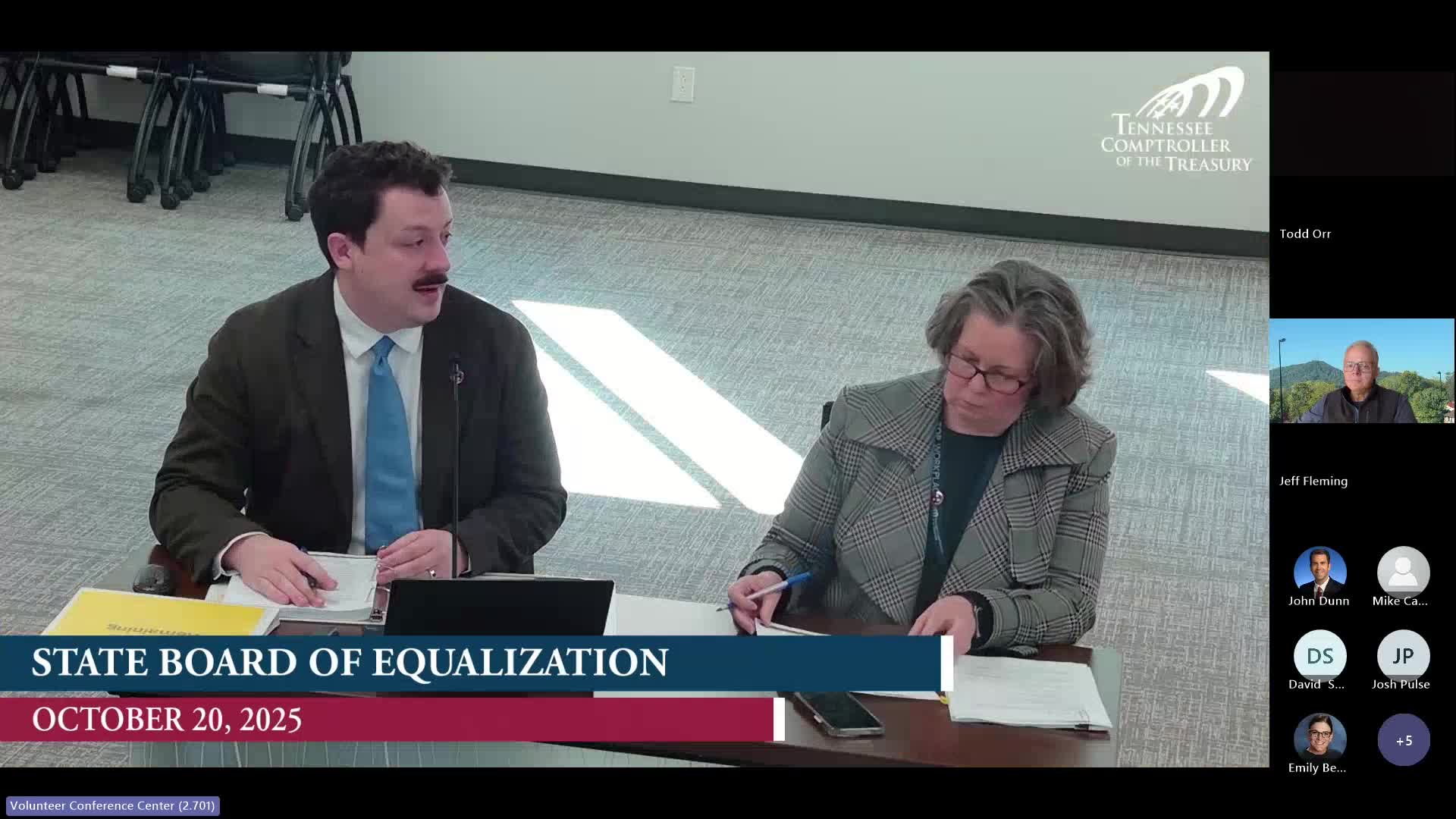Board of Equalization approves 20 counties' reappraisal plans; Shelby County approval made contingent on signed MOU
Get AI-powered insights, summaries, and transcripts
Subscribe
Summary
The Tennessee State Board of Equalization on Oct. 20 approved reappraisal plans from 20 counties, including one contingent approval for Shelby County pending a signed memorandum of understanding between the county and the Division of Property Assessments.
NASHVILLE, Tenn. — The Tennessee State Board of Equalization on Oct. 20 approved reappraisal plans submitted by 20 counties and accepted one county's revised timetable to move its reappraisal from a five-year to a four-year cycle, with one approval for Shelby County made contingent on a signed memorandum of understanding (MOU).
The Division of Property Assessments recommended board approval after reviewing county plans for content and accuracy. “Tennessee Code Annotated § 67-5-1601 requires each county to prepare a plan of reappraisal for approval by the state board of equalization,” Macy Brower, assistant director with the division, told the board.
The board accepted the division's recommendation to approve the submitted plans. Brower told the board that 20 counties completed reevaluation for 2025 and submitted plans for their next cycles; one county proposed shortening its cycle to four years so its next reevaluation would occur in the 2027 tax year.
Shelby County's plan was approved subject to a signed MOU. Javier Bailey said Shelby County had submitted the plan and a resolution and that the county mayor had signed the resolution, but the county attorney requested that the final clause of the MOU be reviewed and approved by the county commission before signing. “The county attorney wanted to get the county commission to at least review and agree to that clause in the MOU,” Bailey said. He told the board he expected the MOU to be placed on the commission's next committee agenda and expressed confidence the document would be signed without delaying the county's reappraisal schedule.
Board members discussed how more frequent reappraisals and indexing can affect local revenue flows. One board member noted that the application of the sales-ratio adjustment had reduced Shelby County's annual revenue by about $32 million over the past two years, a shortfall the member said local officials had counted into their certified tax-rate calculations. Comptroller Mumpower and others said they favor shorter reappraisal cycles in some counties to reduce reliance on sales-ratio adjustments and to better protect long-time homeowners.
Board members also discussed appeals backlogs. The board was told efforts to reduce Shelby County's backlog of appeals had produced significant decreases from a prior backlog measured in the thousands, and that staff have implemented policies to keep pending appeals from lingering.
The chair moved approval of the reappraisal plans and the board approved the motion by roll call. The board directed that Shelby County's approval be contingent on submission of the signed MOU to the Division of Property Assessments.
Less substantive items on the agenda — including review of assessment designations where no candidates were listed — were noted as having no action required.
